
MEMO’s Director, Daud Abdullah
“At the moment it was on hold, it’s due to intervention of Secretary of State John Kerry who has visited Israel five times in the last two months and we have noticed whenever this US officials Israeli visit occur the whole process of reconciliation is put on hold,” Daud Abdullah, Director of Middle East Monitor (MEMO) told Mi’raj News Agency (MINA) in an exclusive interview on Tuesday (11/6).
Daud who joined international conference for the liberation of Al Quds and Palestine held in Bandung, Indonesia, last year said the obvious reason that can be seen is the American administration does not want this to be completed because of the stand of hamas, the Islamic movement in Gaza.
“They have frightened authority in Ramalah (the area ruled by Fattah dominated Palestinian Authority) that if such agreement is concluded then all authorites in Ramallah will be seized,” Daud added.
Also Read: Over 700 Palestinians Killed by Israeli Fire While Collecting Water in Gaza
As its official website, MEMO was established to provide up-to-date reporting and carefully reasoned commentaries rooted in factual evidence of Middle East cause.
Concerning the recent peaceful events of Global March to Jerusalem (GMJ), Daud said numbers of activists from Palestinian organizations as well as British organizations who support Palestinian cause held rally in front of Israeli embassy in London.
Distinguished participants Including ambassador Manuel Hassassian (Palestinian ambassador to the UK) spoke in that event, he added.
The rally aimed at sending message to the Israeli occupation establishment that such etnic cleansing, judaization of Jerusalem is not acceptable not only for Palestinians but also for international community, he asserted.
Also Read: Netanyahu Hints at Quitting Gaza Ceasefire Talks
“What we saw in Middle East it shows that people are waking up into the reality of Jerusalem,” he said.
According to Daud, early priority is to restore the land of its rightful owners, Palestinian, who has been oppressed since so long.
John Kerry acknowledges failures over Israeli-Palestinian peace process
The US secretary of state began fourth recent visit to region by saying he hopes to surprise people by laying a path to peace.
Also Read: Israel Presents New Gaza Map in Doha Talks
According to a report publiished in http://www.guardian.co.uk, Kerry has acknowledged years of disappointment over the Israeli-Palestinian peace process at the start of his fourth recent visit to the area, but added that he hoped to confound sceptics and cynics.
Kerry met the Israeli prime minister, Binyamin Netanyahu, and the Palestinian president, Mahmoud Abbas, and won strong support for his peace mission from the British foreign secretary, William Hague, who is also visiting the Middle East.
Speaking in Jerusalem, Kerry said: “I know this region well enough to know there is scepticism; in some quarters there is cynicism and there are reasons for it. There have been bitter years of disappointment. It is our hope that by being methodical, careful, patient – but detailed and tenacious – that we can lay on a path ahead that can conceivably surprise people and certainly exhaust the possibilities of peace.”
He praised Netanyahu’s seriousness in trying to find ways back to the negotiating table. Later he and Abbas discussed their “shared commitment to the peace effort”, a statement said.
Also Read: UNICEF: Over 5,800 Children in Gaza Diagnosed with Malnutrition
Both sides have said they want to see Kerry’s efforts succeed. The Palestinians claim that the secretary of state has asked to be given until 7 June to make progress, and they have agreed to refrain from pursuing their statehood claims at international bodies until then.
On the Israeli side, an unannounced de facto moratorium on settlement expansion has been marred by a move to retroactively authorise four West Bank outposts and to press ahead with 300 new homes in the settlement of Beit El.
Most diplomats and observers are cautious about Kerry’s chances of success. However, earlier this week the Palestinian chief negotiator, Saeb Erekat, hinted at some slow progress, saying: “Mr Kerry is keeping things [close to] his chest. He likes to work very, very, very below the radar and grow things like mushrooms.”
Speaking to a United Nations committee in New York, Erekat described the situation in the West Bank and East Jerusalem as “apartheid – worse than that which existed in South Africa“.
Also Read: Surge in Suicide Among Israeli Soldiers Raises Alarm Amid Prolonged Gaza Genocide
The growth of Israel‘s settlements in the West Bank and East Jerusalem, which are illegal under international law, remain a major stumbling block to renewing talks. The Palestinians want construction to stop before re-entering negotiations while Israel insists it has the right to increase the settler population.
Hague, on a two-day visit to the region, said the peace process was “an urgent priority for the United Kingdom and the world”, and welcomed the “very strong commitment” of the United States to resume negotiations.
“My visit is in support of those efforts,” he said. “We urge all parties to move the process forward and to really give the bold and decisive leadership that will allow success.” Peace was necessary, just and possible, he added.
The foreign secretary visited a Bedouin community, Khan al-Ahmar, on the eastern edge of Jerusalem, whose homes, school and animal shelters are under a demolition order from the Israeli authorities. (T/P03/P04/E1)
Also Read: Israeli Forces Sustain Losses in Fierce Clashes in Khan Younis and Shujaiya
Mi’raj News Agency (MINA)
Also Read: Seven UN Agencies: Fuel Shortage Puts Gaza in Critical Health Crisis







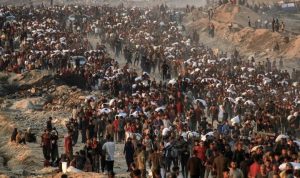
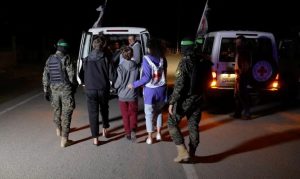
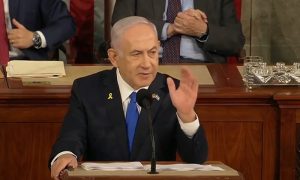
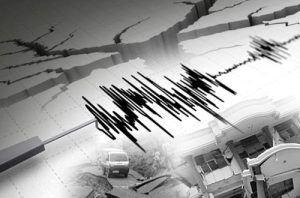









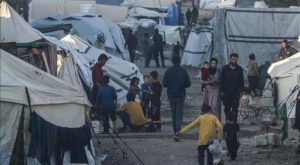
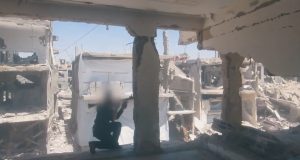

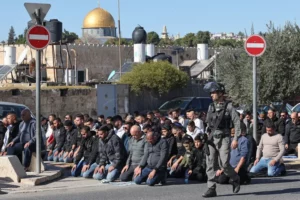





 Mina Indonesia
Mina Indonesia Mina Arabic
Mina Arabic